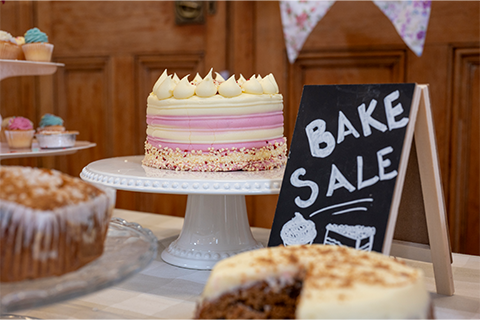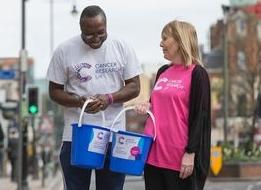Fundraising Legally and Safely
The legal bits
The information on this page is specifically intended to provide general guidance only and is not legal advice.
Cancer Research UK cannot accept responsibility for accidents, injuries, loss, or damages which occur because of your fundraising activity or event.
When promoting your fundraising or using fundraising materials, you must say that you are fundraising “In aid of Cancer Research UK, Registered Charity Nos (1089464), (SC041666), (1103), (247)”
Plan ahead
Planning ahead will help you put on a safe, legal, and successful fundraising activity or event.
You'll need to follow national Government and any localised council guidance for your area. If you're organising a mass participation event, it's also useful to liaise with your local safety advisory group within your local authority or council.
Make your event safe
You’ll need to complete a risk assessment for your event. A risk assessment will help ensure that you’ve thought of any potential hazards and have put measures in place to minimise any risk.
You’ll also need to ensure that suppliers of any goods or services are a reputable company with their own risk assessment.
Get covered
You should consider if you need to take out public liability insurance for your fundraising activity or event. This will protect you if a member of the public is injured during your activity or event.
You should request to see the public liability insurance certificate of any suppliers you hire. This will ensure that they're covered in the event of an accident or incident with their equipment or service.
Food and drink

The Food Standards Agency provides guidelines for preparing, handling, and cooking food. If you're using a caterer, you'll need to ensure they have a Food Hygiene Certificate and public liability insurance.
If you intend to serve alcohol, you'll need to obtain a license from your local council.
First aid
Some events require you to have a first aider or first aid services present for potential emergencies.
You should consider:
- the number of people
- type of event and risk involved
- type of people, including their ages
- location and type of venue
- how long the event lasts
- the weather
- proximity to local medical facilities
- what experience you have of similar events
- any welfare and first aid facilities are at the venue
You should make it clear to people taking part that they're responsible for ensuring that they're fit and well to take part.
Children and vulnerable adults
Children and vulnerable adults need to be considered as part of your risk assessment, and when employing suppliers for goods or services
You should consider any applicable age restrictions on gambling, alcohol and collecting or handling of money are followed. That children are properly looked after during the activity or event and have permission to participate from a parent and/or guardian.
If any photography or filming is taking place during the fundraising activity or event notify people attending and obtain written consent to capture their image. For children consent should be obtained from a parent and/or guardian.
If children or vulnerable adults will be present at your fundraising activity or event you should carry out appropriate checks on any adults volunteering or employed to help. The Government’s Disclosure and Barring Service (DBS) provides further information on how to do this.
If you have a concern for the safety of a child or vulnerable adult information on help and support can be found here.
Suppliers
Many professional services follow a Code of Practice to ensure services are provided safely. For example, the Health and Safety Executive offers guidance on amusements and attractions like bouncy castle and fun fair rides. They work with the Professional Inflatable Play association on bouncy castles and inflatable attractions and the Amusement Device Inspection Procedures Scheme (ADIPS) on amusement rides. The Face Painters Association - FACE provides information which can be used to validate face. painters
Collecting and handling money

If you're collecting money in a public place or street, you will need a licence to collect from the local authority. They'll also provide you with any rules and guidance for your collection.
If you are collecting on private land or property, you will need written permission for the person responsible for that site.
Please do not conduct door to door collections as a fundraising activity or event.
You need to stay safe when you are collecting and handling money, our top tips are:
- have 2 people present when money is being handled, transported and counted
- use a goblet or bucket provided by Cancer Research UK and make sure it is sealed
- don’t leave money unattended and use a secure place to count money collected
- deposit the money as soon as possible, ideally on the same day but if not possible keep the money in a safe or secure location
- if confronted by someone, you should hand the money over and report it to the Police straight away
Licenses
It's important to check with your local authority to see what licenses you need when fundraising.
Things that require licenses, include:
- entertainment, including recorded music
- selling alcohol
- holding a raffle, lottery or auction
- doing a cash collection in a public place or street
- putting up banners or signs in public space
You should read guidance provided by the Gambling Commission if you are holding any raffle, sweepstake, lottery or bingo activity to make sure your activity is legal.

